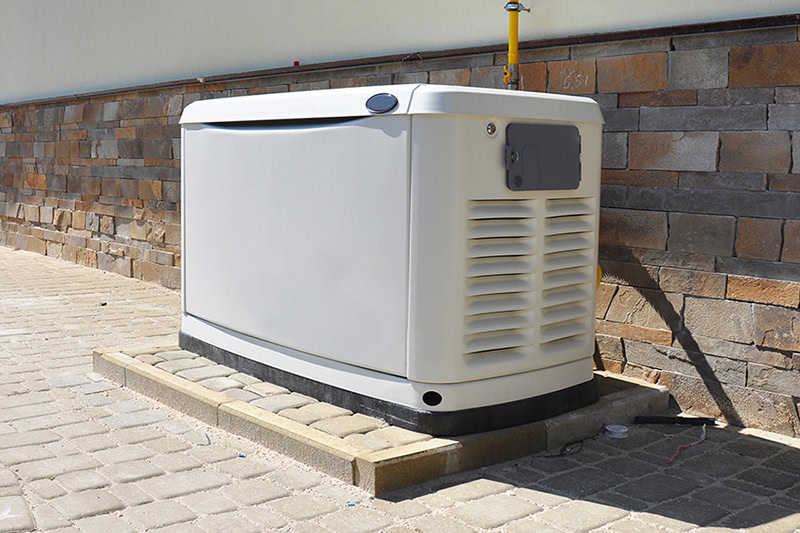Whole-Home Generators and Home Insurance: What You Need to Know

When the power goes out, everything changes. Your fridge stops running. Your HVAC shuts down. In extreme cases, your sump pump might fail or your medical equipment might stop working.
That’s why more Southlake, homeowners are investing in whole-home generators—to protect against the unexpected and maintain comfort and safety during outages.
But beyond convenience, many homeowners wonder: Can a whole-home generator actually affect my home insurance? The short answer: yes, it can—and usually in a good way.
Our team at Generator Authority breaks down the relationship between generators and home insurance to help you understand how a generator might reduce risks, potentially lower premiums, and affect your coverage.
What Is a Whole-Home Generator?
Unlike portable generators, which power just a few appliances and require manual setup, whole-home generators are permanently installed systems that automatically turn on when the power goes out. They typically run on natural gas or propane and are wired directly into your Southlake, home’s electrical panel to provide backup power for your entire house.
How Generators Reduce Risk—and Why Insurers Care
Insurance companies assess risk when pricing your premium. The lower your home’s risk of damage or loss, the better your chances of receiving favorable rates.
A whole-home generator helps reduce several major risks that insurers pay close attention to:
Prevents Freezing Pipes
In colder climates, losing heat during a winter power outage can lead to frozen and burst pipes. A generator helps keep your heating system running, protecting your Southlake, home from water damage and costly repairs.
Keeps Sump Pumps Running
If your home relies on a sump pump to prevent flooding, a power outage can be a serious threat, especially during storms. A generator ensures that the sump pump stays operational, which can help avoid basement flooding and related claims.
Protects Perishables and Appliances
Extended outages can lead to spoiled food and damage to sensitive electronics. A whole-home generator protects your refrigerator, freezer, and appliances by delivering stable, consistent power.
Provides Security and Lighting
When the power is out, so are most Southlake, home security systems, smart locks, and exterior lighting. A generator helps keep your home protected against theft and vandalism by maintaining these systems.
Will a Generator Lower My Insurance Premium?
Some insurance companies may offer discounts for homes that are equipped with risk-reducing systems like whole-home generators. These discounts tend to be modest, but in certain situations, they can help lower your premium.
Factors that influence whether you’ll receive a discount include:
- Your insurance provider
- Your state or region
- Frequency of outages in your area
- The specific risks the generator helps mitigate
As always, talk to your insurance agent directly to find out if installing a generator qualifies you for any discounts or incentives.
What Homeowners Insurance Might Not Cover
Even with a generator in place, it’s important to understand the limits of your homeowners’ policy regarding outages and generator-related issues.
Spoiled Food
While some policies cover food spoilage due to power outages, it usually depends on the cause of the outage and the terms of your coverage. A generator can prevent spoilage, but if it fails or is not used, your insurer may not reimburse you without specific coverage.
Generator Damage
If your generator is permanently installed, it may be covered under your dwelling protection. However, damage to portable units or equipment that is improperly documented might not be included. Ask your provider if adding equipment breakdown coverage is a smart move.
Improper Installation
If a generator is installed incorrectly and causes damage, your insurance may not cover the resulting costs. That’s why professional installation is a must—along with compliance with local codes and safety standards.
What You Can Do to Maximize Benefits
If you already own or are planning to install a generator, here’s how to get the most value from both the system and your insurance:
- Check with your insurance company to confirm whether a generator qualifies for a discount or affects your policy.
- Keep detailed records of the purchase and installation, including receipts and permits.
- Make sure your generator is included in your policy’s dwelling coverage if it’s a permanent fixture.
- Ensure professional installation by a licensed electrician to meet code requirements.
- Explore add-ons like equipment breakdown coverage if the generator plays a critical role in your Southlake, TX, home.
The Bottom Line: Generator and Insurance
Whole-home generators are more than just a backup plan—they’re a form of risk mitigation. By maintaining essential systems like heating, cooling, sump pumps, and security, a generator can help you avoid damage and insurance claims. While not every provider offers discounts for having one, the reduced risk and increased peace of mind are worth the investment.
If you’re considering a generator, make sure to also talk with your insurance provider. Ensuring your policy reflects your investment is an important step in protecting your Southlake, home and your finances when the unexpected happens.
Want help comparing insurance policies or choosing the right generator for your home? Reach out to a licensed agent or contractor who can guide you through the process—because protecting your home starts with planning ahead. Call Generator Authority at 817-984-3600 or request service online to learn more today.
